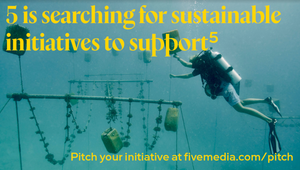
Is the Rise of Social Media to Blame for the Death of Quality News?

“Is Twitter to blame for the death of democracy?” That was the question posed by CNN reporter Laurie Segall to Twitter co-founder Ev Williams at the close of the 2018 Web Summit in Lisbon on Friday.
It’s a bold and multifaceted question - and one that we all must grapple with, not just those of us who work in media.
Rebuilding Trust
At a time when trust in traditional institutions is at an all-time low, defending the role of quality journalism has never been more important. As we’ve seen with Facebook’s recent Senate Intelligence hearings in the US and the aforementioned question posed to Twitter last week, tech platforms are not the neutral tools we once thought they were.
In fact, they’re incredibly vulnerable to partisan politics and malignant forces, like bots and extremist groups who take advantage of their reach and ability to incite a mob mentality.
Multifaceted Landscape
As a PR strategist navigating the media landscape, I am all too aware of its shifty nature. The field is expanding rapidly. 'Meaningful coverage' used to entail an interview with the press; now it could be a podcast, an Instagram re-post by a prominent influencer, or a viral Tweet.
Working in this industry, we have to constantly ask ourselves: What’s the best platform for this particular story? Is digital or print media more compelling? How do we gauge audience engagement beyond social media?

Democratising Journalism
When the name of the PR game is to get your client meaningful coverage, you have to revisit these questions daily. And with the advent of social media, it’s undeniable that it has irreversibly changed the world we work - and live - in.
So, what was Williams’ response to the query from CNN? He acknowledged that the platform has given rise to the spread of misinformation, but he also defended Twitter, saying it’s been equally responsible for amplifying and accelerating movements such as Me Too and Black Lives Matter.
Quantity over Quality?
Williams, who is also the founder of Medium, a platform that publishes 20,000 articles per day, is clearly an advocate of giving a platform to anyone who wants one. But it’s also clear he questions this, himself.
“We’ve created a world in which attention is rewarded in quantity not quality,” he said. Attributing this to analytics, he added, “we can measure reach and engagement, but not what somebody learned, how they felt, or if they’re now any smarter.” He ended his defence of Twitter proclaiming, “thank you for noting, I’m the co-founder of Twitter; it's not all my fault!”

The Fourth Pillar of Democracy
A healthy democracy needs a bold and independent media, and this point was underscored by Kim Masters, an editor with The Hollywood Reporter. Masters shared insights from being behind-the-scenes while breaking the Harvey Weinstein scandal last fall.
“Harvey rang and offered me a book deal. He knew we were about to run the story. I said, 'we’re not having this conversation', and hung up.”
Masters, a former correspondent for NPR, was also responsible for breaking the story of sexual harassment allegations that led to the resignation of Amazon Studios head Roy Price. She challenged the notion that in a post-Me Too world, men should be fearful of being wrongly accused. Masters, defending the the work of journalists said: “If only people knew how much work it takes to break a story. How many checks and balances there are. What risks we take and how much research we do.”
Not All News Is Good News
In a world where, in part thanks to platforms such as Medium, everyone is a journalist and everyone has a platform, restoring trust in established news platforms is essential.
Today, while everyone is able to enjoy their 15 minutes of fame, it’s imperative we remember that not all sources of information are equal. Not all news is good news, after all.
Lucy von Sturmer is founder of strategic communications consultancy The Humblebrag










